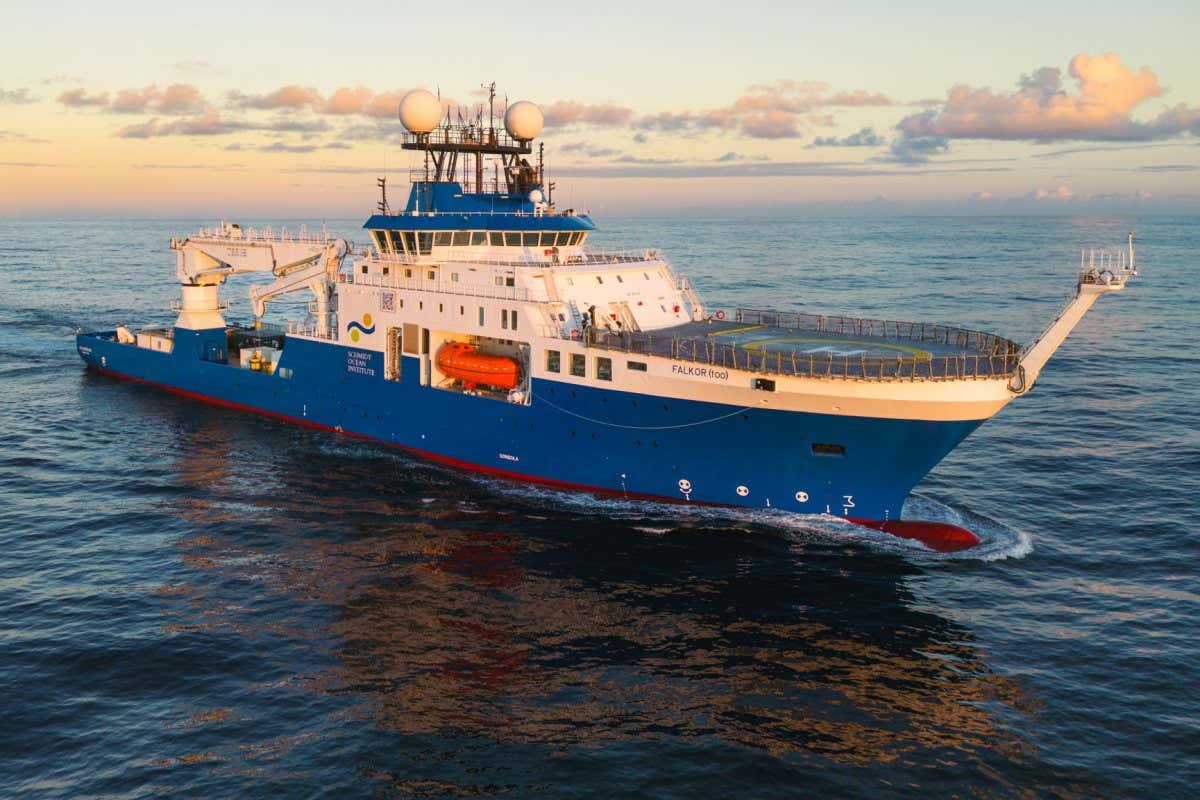High-Tech Ship Hunts Life at Hydrothermal Vents: Unveiling Secrets of the Deep
The deep ocean, a realm of perpetual darkness and crushing pressure, harbors some of Earth's most extraordinary ecosystems. Among these are hydrothermal vents, underwater geysers spewing superheated, mineral-rich water. These seemingly inhospitable environments teem with life, thriving on chemosynthesis rather than sunlight, making them a fascinating area of scientific study. A state-of-the-art research vessel, the Atlantis, is currently undertaking an ambitious expedition to explore these unique habitats, pushing the boundaries of deep-sea exploration.
Unveiling the Mysteries of Chemosynthesis
This groundbreaking expedition isn't just about observing the life forms; it's about understanding the complex web of life sustained by chemosynthesis. Unlike photosynthesis, which relies on sunlight, chemosynthesis uses chemical energy from hydrothermal vents to power the food chain. Scientists are eager to learn more about:
- The diversity of life: Hydrothermal vents are home to unique species, many of which are found nowhere else on Earth. This expedition aims to catalog and study this incredible biodiversity, potentially uncovering new species.
- The adaptation mechanisms: These organisms have evolved remarkable adaptations to survive the extreme conditions of hydrothermal vents, including extreme pressure, temperature, and chemical composition. Studying these adaptations could have implications for fields beyond biology.
- The interconnectedness of the ecosystem: Researchers will be investigating the intricate relationships between different species within the vent community, revealing how this unique ecosystem functions.
High-Tech Tools for Deep-Sea Exploration
The Atlantis's success relies on a suite of advanced technologies, allowing researchers to explore these challenging environments safely and effectively:
- Remotely Operated Vehicles (ROVs): These underwater robots are equipped with high-definition cameras, manipulator arms, and various sensors, allowing scientists to observe and collect samples from the vent sites without risking human divers.
- Autonomous Underwater Vehicles (AUVs): These unmanned submersibles can autonomously navigate and map the seafloor, providing crucial data on the location and extent of hydrothermal vent fields.
- Advanced sampling equipment: Specialized tools allow for the precise collection of water samples, biological specimens, and geological data, facilitating detailed laboratory analysis.
Implications Beyond the Deep Sea
The findings of this expedition extend far beyond the realm of marine biology. Understanding the life at hydrothermal vents could provide insights into:
- The origins of life: The unique chemical conditions at these vents might offer clues about how life first arose on Earth and potentially elsewhere in the universe.
- Biotechnology: The unique enzymes and proteins produced by these organisms could have valuable applications in various industries, such as medicine and bioremediation.
- Climate change impacts: Studying the resilience of these ecosystems to environmental changes can offer valuable insights into how other ecosystems might respond to climate change.
The Future of Deep-Sea Exploration
This expedition represents a significant step forward in our understanding of the deep ocean and the remarkable life it supports. As technology continues to advance, we can expect even more ambitious explorations into these enigmatic realms, revealing further secrets of the deep and enriching our understanding of life on Earth. Follow the Atlantis's progress for updates on this fascinating research. Stay tuned for more updates on this groundbreaking expedition as data is collected and analyzed. What new discoveries will be revealed? Only time will tell.

